13 December 2021
Sue Macklin is a community visitor for Harbour Hospice who is currently helping out at our Albany shop. Sue used to be a prison librarian and shares some insights into what that role was like, and what brought her to us.

Sue, what inspired you to volunteer for Harbour Hospice?
When I was about 12 years old a teacher read us a book called Bury Me In My Boots by Sally Trench. It was about a young, privileged woman who would leave her house in Belgravia, London every night to shimmy down the drainpipe and go to hold the hands of the old, homeless people in the railway station as they died. One day a policeman saw her and followed her to see what she was up to. After seeing what she was up to, he would wait every night to help her down the drainpipe. That story had a great impact on me, the idea of giving comfort.
How incredible that this book made such a strong and lasting impression.
You can only feel empathy if you can put yourself in somebody else’s shoes. And reading often gives us that experience.
Before you began volunteering you worked as a librarian in a men’s maximum-security prison. How did you come to have that job?
I’ve always been an avid reader and when my children were little, I volunteered at the school library. After emigrating to New Zealand from Massachusetts, in the US, my friend helped me to get a job at Hato Petera, where I soon received training from the National Library and became the college’s sole librarian. Then I met a woman at book club who was the head librarian at a men’s prison. I told her I’d always wanted to be a prison librarian and when a job as her assistant came up, she suggested I apply.
What was it like being a prison librarian?
In maxi the men were allowed out twice a day. In the morning, to go out on the landing and in that short time period they had to shower, make their phone calls and socialize. In the afternoons, they were let out for yard time. That landing time was when we would push our trolley up against the grill (the big, barred gates) and the men would come and put their hands through the bars and choose and return their books.
We had to follow a very strict two-weekly roster to get around all of the blocks, so if we missed the men on our scheduled day we wouldn’t see them again for two weeks. We felt it was very important to see them face to face, so we’d get resentful if we were called in to meetings at those times.
The men who loved reading knew what they wanted, so we had to just keep them well-stocked with books. We visited op shops to buy books and when donations came in, we'd dive through those donations picking out the ones we knew certain men would be grateful for. Then we had the guys who would only read what their koro had read, so they would only read one author and you’d slowly teach them that if they liked this author, then they might like this one too. And then there were the ones that wanted to know all about their genealogy, or the stuff they hadn't been interested in before they received this long sentence. We tried to meet their every need from self-help and spiritual books, to history, poetry and art. A very popular genre was anything to do with health and exercise. Working out is therapy for incarcerated people.
Did you feel empathy for them?
Yes. I did. Some, I found out about their crimes – but most, I did not. I only saw them as they were on the day, and I always felt that that they were not their crime. My job was to make sure they had the best reading material I could possibly give them.
And now you’re a community visitor for hospice.
Yes, it’s the connections with people that are important to me, their stories, the act of being human.
